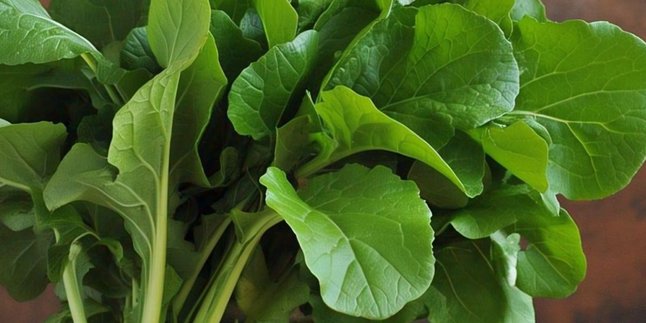Kapanlagi.com - The rainy season that arrives in January often brings with it the risk of increased illnesses like flu and cough. However, did you know that cold weather can also trigger a spike in cholesterol levels in the body? This has the potential to increase the risk of heart attack or stroke.
Quoting from various sources on Friday (11/04/2025). An interesting study from the State University of Campinas in Brazil revealed that levels of bad cholesterol (LDL) in the blood tend to spike during winter and will decrease again when temperatures start to warm up. Although seasonal changes in Indonesia are not too extreme, it is important for us to understand how weather can affect health, especially cholesterol levels.
Dr. Filipe Moura, the leader of the study, explained that in winter, people tend to consume more calories and fatty foods. This can certainly have a negative impact on bad cholesterol levels. Additionally, Dr. Muliaman Mansyur from Kalbe Nutritionals added that fluctuations in cholesterol levels in the blood can increase the risk of heart attack or stroke, especially in winter. However, in Indonesia, the not-so-significant temperature differences make the impact not too large.
Keep taking care of your health, okay! The rainy season may bring challenges, but with the right knowledge, you can be better prepared to face any risks.
1. Cholesterol Tends to Increase in Winter
An interesting study from the State University of Campinas in Brazil reveals that levels of bad cholesterol or LDL tend to spike when winter arrives. However, as temperatures begin to warm up, those cholesterol levels will drop again. These findings are particularly relevant for countries with four seasons, where drastic temperature fluctuations can affect heart health. In countries like the United States and Europe, significant temperature changes often result in more pronounced increases in cholesterol levels, especially due to dietary and lifestyle changes during the winter months. Therefore, it is crucial for residents in four-season countries to pay more attention to their food intake and maintain their physical activity during these winter months.
2. High Caloric Intake in Winter Affects Cholesterol

illustration of cookie recipe/copyright unsplash/Rai Vidanes
When winter arrives, people tend to enjoy richer, calorie-dense dishes and fatty foods, such as red meat, sweet pastries, and tempting sugary drinks. However, behind this enjoyment lies a lurking danger—an increase in bad cholesterol levels in the blood. Research shows that the abundant eating patterns during this winter season can potentially raise the risk of high cholesterol, making us need to be more vigilant about our food choices. So, even though the cold weather invites us to indulge in delicious food, don't forget about heart health!
3. Four-Season Countries Are More Vulnerable to Changes in Cholesterol Levels
Significant changes in cholesterol levels occur in regions with a significant climate shift between winter and summer, such as in the United States and Europe. There, drastic temperature fluctuations make the spike in cholesterol during winter even more pronounced. Dr. Moura emphasizes that individuals living in these countries need to be more cautious, as extreme changes in cholesterol levels can seriously impact their heart health during the cold months. Therefore, for residents in these areas, maintaining heart health becomes increasingly important as temperatures begin to drop.
4. The Impact of the Rainy Season in Indonesia on Cholesterol

Illustration – heavy rain accompanied by strong winds is prone to occur during transitional seasons. (Liputan6.com/Muhamad Ridlo)
In Indonesia, the change of seasons does not bring significant temperature changes, so fluctuations in cholesterol levels during the rainy season are not very noticeable. With a tropical climate that only recognizes two seasons—rainy and dry—the temperature during the rain may feel cooler, but its impact on cholesterol is not as strong as in four-season countries. According to Dr. Muliaman, seasonal changes in the homeland do not significantly affect cholesterol health, emphasizing that a healthy diet and lifestyle remain the main keys to maintaining health.
5. No Special Treatment Needed During the Rainy Season
In Indonesia, the insignificant temperature changes make the rainy season not require special attention in managing cholesterol levels. Although the weather may feel cooler, the effects are far from those experienced in four-season countries. Dr. Muliaman emphasizes that with only two seasons present, there is no need to worry about special treatments when the rain comes. However, maintaining a healthy diet and staying active is key to ensuring stable cholesterol levels and overall health.
6. A Healthy Lifestyle Remains the Key to Maintaining Cholesterol
Maintaining healthy cholesterol can be an enjoyable journey if you know the right steps! The main key is to manage your diet wisely by avoiding saturated and trans fats lurking in foods, and instead, fill your plate with a variety of fiber-rich vegetables and fruits. Don’t forget to move! Spend at least 30 minutes every day exercising, and feel the benefits. By adopting this healthy lifestyle, the risk of high cholesterol can be countered, and health will be increasingly maintained!
(kpl/khs)
Disclaimer: This translation from Bahasa Indonesia to English has been generated by Artificial Intelligence.














